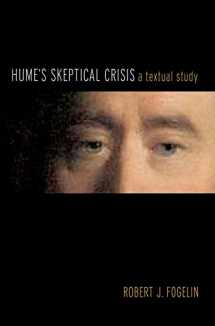
Hume's Skeptical Crisis: A Textual Study
Book details
Summary
Description
In Hume's Skeptical Crisis Robert Fogelin provides a textual study of the changes in perspective that emerged as Hume pursued his attempt to introduce the experimental method of reasoning into moral subjects--the subtitle of the Treatise of Human of Nature. In the process of giving an account of the operations of the human mind, Hume discovered that the mechanisms that create and sustain our beliefs are deeply unreliable and, in fact, capricious in their operations. Hume's crisis emerged when he recognized that the weaknesses that he ascribed to the operations of the human mind apply with equal force to the operations of his own mind. How, he asked himself, could he justify pursuing profoundly difficult investigations employing mental faculties that were manifestly not up to the task? His response was to trim back the ambitious program announced at the start of the Treatise.
Hume returned to this topic in the opening section of the Enquiry Concerning Human Understanding, where, in a more circumspect mood, he weighed the reasons for and against pursuing what he calls abstruse philosophy. Given our limited capacities and the complexities of the subject, what, he asked, are the chances of success in pursing abstruse philosophical investigations? Hume answered that we could expect at least modest success by adopting the stance of a mitigated skeptic, where one cautiously examines only those topics suitable to our limited mental capacities. Hume held that this standpoint could be attained by counter-balancing radical Pyrrhonian doubt on one side with our non-rational instincts to believe on the other side. As a result, Hume's initial attempt to produce a "compleat system of the sciences" was transformed into "reflections of common life, methodized and corrected."


We would LOVE it if you could help us and other readers by reviewing the book
Book review



